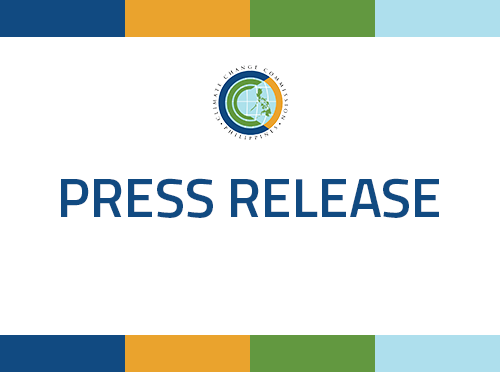
March 29, 2020 Sunday

MANILA, 30 MARCH 2020 – The Climate Change Commission (CCC) emphasized the importance of letting science inform strategies and actions to address global health and climate emergencies, which cause built in systems to be rapidly strained, such as in the alarming spread of the novel coronavirus disease (COVID-19).
Twelve years before the emergence of COVID-19, which has now afflicted over 600,000 people, scientists through a study published by the Clinical Microbiology Reviews had early on warned of a possible disease outbreak in China due to the culture of eating exotic mammals in the southern section of the country.
The study titled, Severe Acute Respiratory Syndrome Coronavirus as an Agent of Emerging and Reemerging Infection, explained that the rapid economic growth in the area resulted in the increase of demand for animal proteins, including horseshoe bats, which are considered host to coronaviruses.
The inadequate enforcement of laws and policies to curb illegal wildlife trade and market increases the risk of virus transmission from animals to human.
The study mentioned that “the small reemergence of SARS in late 2003 after the resumption of the wildlife market in southern China and the recent discovery of a very similar virus in horseshoe bats, bat SARS-CoV, suggested that SARS can return if conditions are fit for the introduction, mutation, amplification, and transmission of this dangerous virus.”
The CCC also noted that for the past years, scientists have also been providing climate projections that can inform and enable nations to prepare and avert the adverse effects of climate change way ahead.
In 2018, the Intergovernmental Panel on Climate Change (IPCC)—the world’s leading scientific body for assessing the science related to climate change—released its Special Report on the Global Warming of 1.5°C, which urged governments to limit global temperature rise below 1.5°C to minimize the destruction of climate impacts to human, health, and ecosystems compared to a development path towards 2°C.
According to the report, limiting warming at 1.5°C is economically feasible, but will require “rapid and far-reaching” transitions, especially in land, energy, industry, buildings, transport, and cities.
“This report by the world’s leading climate scientists is an ear-splitting wake-up call to the world. It confirms that climate change is running faster than we are–and we are running out of time,” said United Nations Secretary-General Antonio Guterres, during the launch of the IPCC report in October 2018.
Guterres also emphasized that with continuous inaction, more heat waves will be experienced by millions of people, more species will be lost, water scarcity will prevail in the most vulnerable countries, fast melting of ice sheets in the Artic region, which would result in higher sea level rise and a wipe-out of the world’s coral reefs.
These scientific findings and projections about climate change and emerging new diseases, give authorities, policymakers, and the general public the information they need to make decisions and actions considering their context and needs.
As a policymaking body, the CCC has been incorporating scientific research and data in the development and implementation of climate policies, plans, and programs and in coordination with other agencies, organizations, and stakeholders.
The CCC emphasizes that science can help understand the problem and provide solutions to address it. Listening to science will help safeguard our health, food and human security, water supply, and socioeconomic growth of the country.